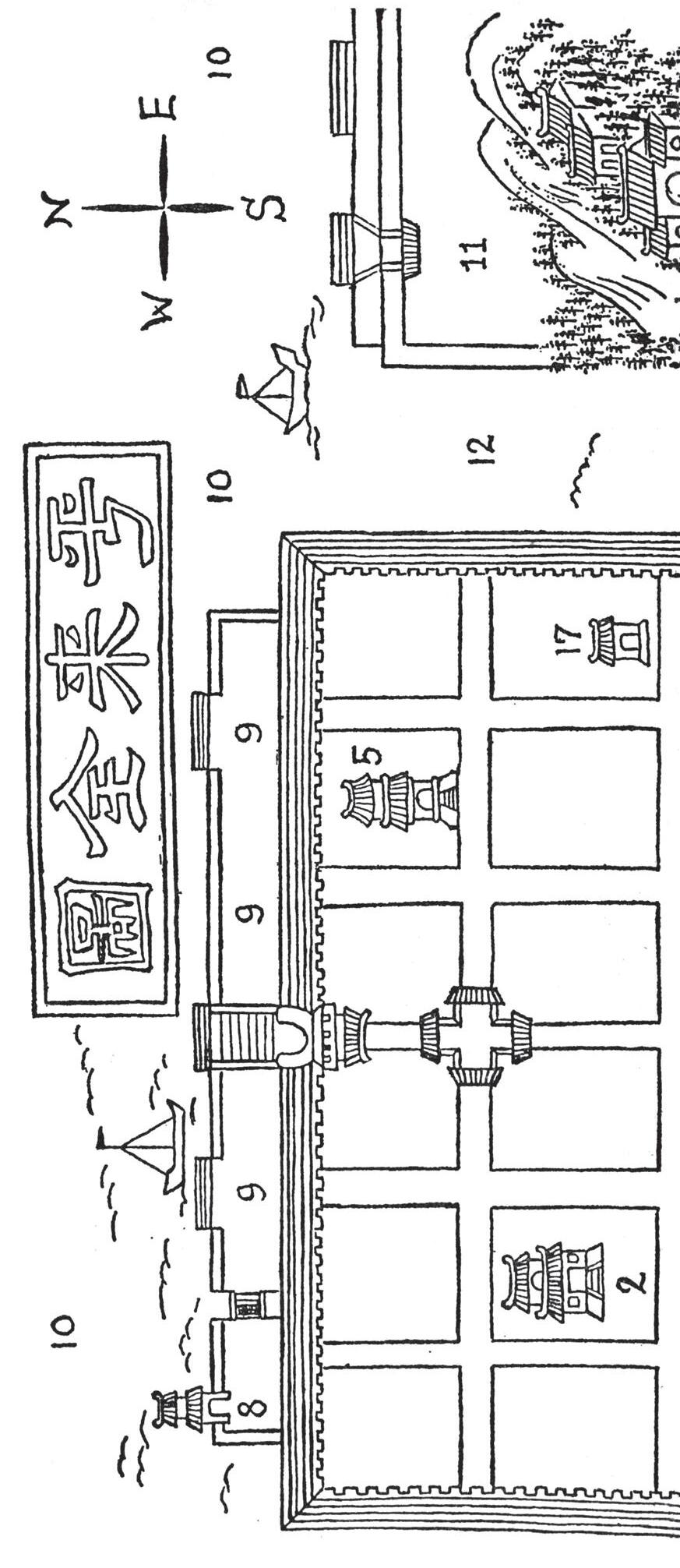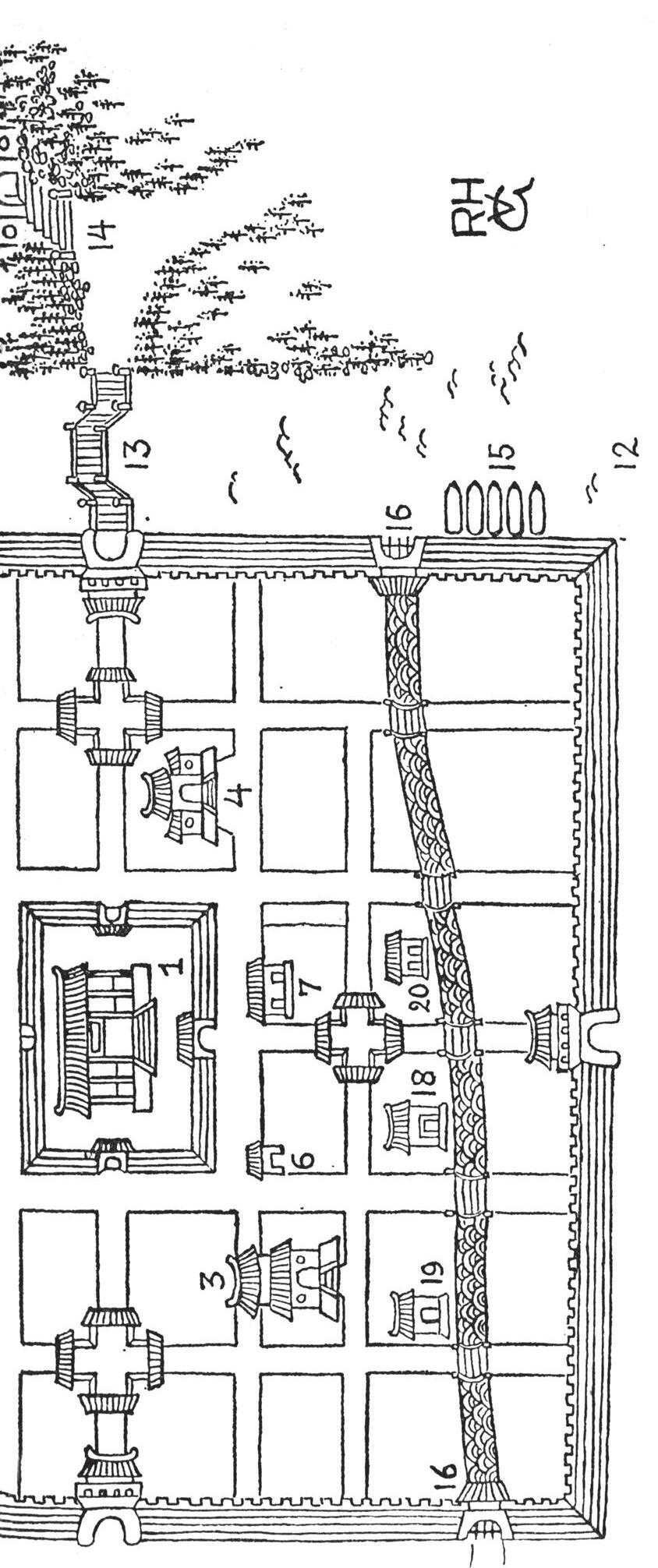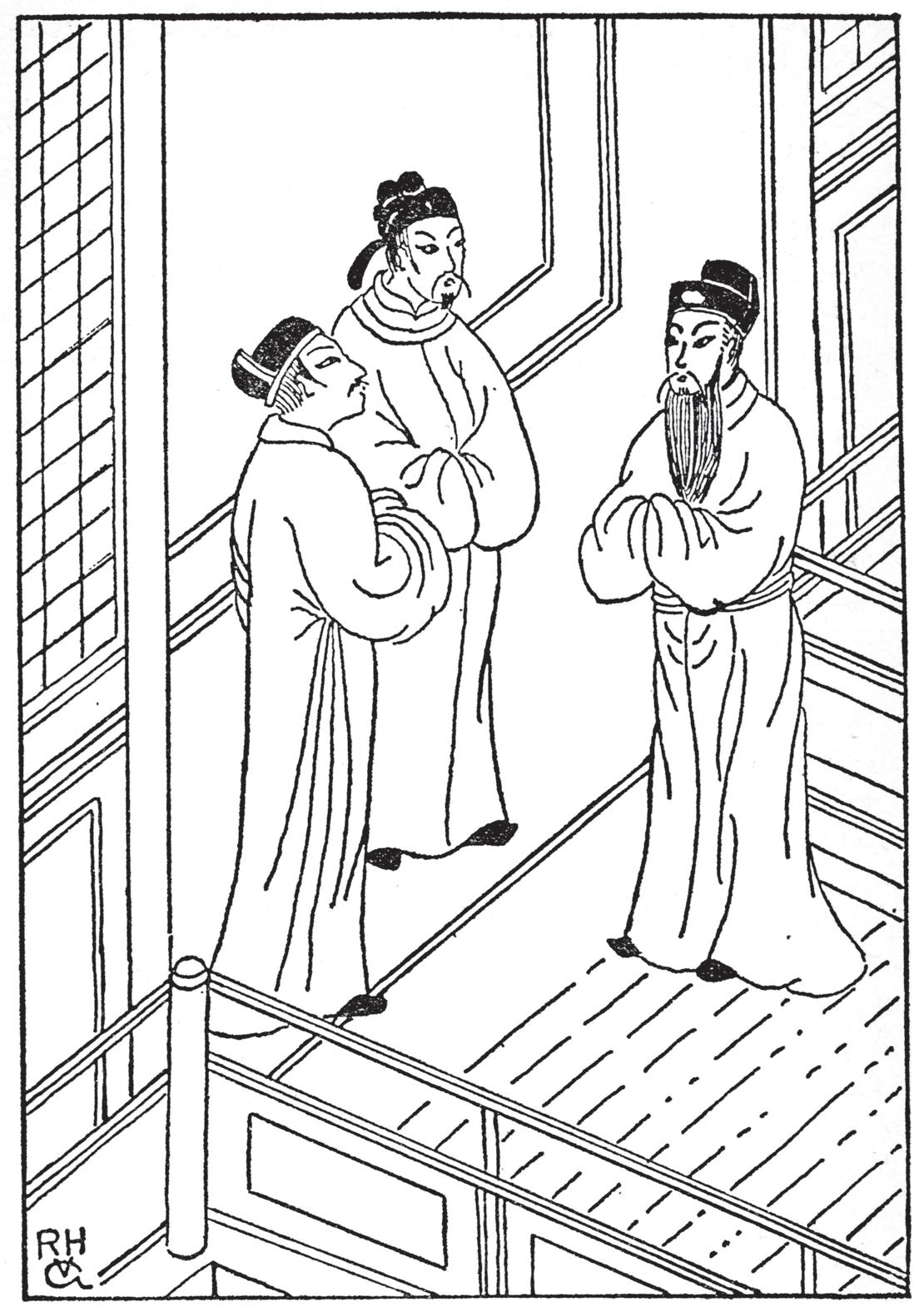The Chinese Gold Murders

‘Some of the most imaginative and stimulating reading in the annals of detection’ The
New York Times
PENGUIN MODERN CLASSICS: CRIME & ESPIONAGE
1. Davis Grubb: NIGHT OF THE HUNTER
2. Edogawa Rampo: BEAST IN THE SHADOWS
3. Dorothy B. Hughes: IN A LONELY PLACE
4. Josephine Tey: THE FRANCHISE AFFAIR
5. Eric Ambler: JOURNEY INTO FEAR
6. John le Carré: CALL FOR THE DEAD
7. Georges Simenon: MAIGRET AND THE HEADLESS CORPSE
8. Len Deighton: SS-GB
9. Ross Macdonald: THE DROWNING POOL
10. Chester Himes: COTTON COMES TO HARLEM
11. Dick Lochte: SLEEPING DOG
12. Raymond Chandler: THE BIG SLEEP & FAREWELL, MY LOVELY
13. Anthony Price: OTHER PATHS TO GLORY
14. Edogawa Rampo: THE BLACK LIZARD
15. Michael Gilbert: GAME WITHOUT RULES
16. Georges Simenon: MAIGRET’S REVOLVER
17. C. S. Forester: PAYMENT DEFERRED
18. Eric Ambler: THE MASK OF DIMITRIOS
19. Josephine Tey: BRAT FARRAR
20. John le Carré: TINKER TAILOR SOLDIER SPY
21. Ross Macdonald: THE UNDERGROUND MAN
22. John Franklin: THE DEADLY PERCHERON
23. Robert Van Gulik: THE CHINESE GOLD MURDERS
24. Cornell Woolrich: I MARRIED A DEAD MAN
25. Ian Fleming: FROM RUSSIA WITH LOVE
26. Anthony Price: THE LABYRINTH MAKERS
27. John le Carré: THE NIGHT MANAGER
28. Edogawa Rampo: GOLD MASK
29. Georges Simenon: NIGHT AT THE CROSSROADS
30. Shirley Jackson: WE HAVE ALWAYS LIVED IN THE CASTLE
Robert van Gulik
The Chinese Gold Murders
A CHINESE DETECTIVE STORY WITH TEN ILLUSTRATIONS
DRAWN BY THE AUTHOR IN THE CHINESE STYLE
PENGUIN BOOKS
PENGUIN CLASSICS
UK | USA | Canada | Ireland | Australia
India | New Zealand | South Africa
Penguin Classics is part of the Penguin Random House group of companies whose addresses can be found at global.penguinrandomhouse.com.
First published by Michael Joseph 1959
Published in Penguin Classics 2024 001
Copyright © Robert van Gulik 1959
All rights reserved
The moral right of the author has been asserted
Set in 11.25/14pt Dante MT Std
Typeset by Jouve (UK ), Milton Keynes
Printed and bound in Great Britain by Clays Ltd, Elcograf S.p.A.
The authorized representative in the EEA is Penguin Random House Ireland, Morrison Chambers, 32 Nassau Street, Dublin D 02 YH 68
ISBN : 978–0–241–70464–6
www.greenpenguin.co.uk
Penguin Random House is committed to a sustainable future for our business, our readers and our planet. is book is made from Forest Stewardship Council® certified paper
Contents
Preface viii
Sketch Map of Peng-Lai x
Dramatis Personae xiii
first chapter: Three old friends part in a country pavilion; a magistrate meets two highwaymen on the road 3
second chapter : A strenuous sword duel is broken off undecided; four men drink wine in the Hostel of Yen-Chow 11
third chapter : An eyewitness relates the discovery of a murder; the judge has a weird meeting in an empty house 22
fourth chapter : Judge Dee goes to visit the scene of the crime; he studies the secret of the copper tea stove 33
fifth chapter : Two stalwarts have a free meal in a restaurant; they watch a strange performance on the waterfront 42
sixth chapter : A drunken poet composes a song to the moon; Chiao Tai meets a Korean girl in a brothel 49
seventh chapter : Judge Dee hears the report on the lacquer box; he goes to visit a temple in the dead of night 60
eighth chapter : A rich shipowner reports the loss of his bride; the judge reconstructs a meeting of two persons 71
ninth chapter : Judge Dee takes his men to inspect a farmhouse; a strange discovery is made in the mulberry bush 83
tenth chapter : A philosopher propounds his lofty views; Judge Dee explains a complicated murder 95
eleventh chapter : The judge visits a Buddhist Abbot; he has dinner on the waterfront 108
twelfth chapter : The confession of a disillusioned lover; the disappearance of a Korean artisan 120
thirteenth chapter : Ma Joong and Chiao Tai go out on a boat trip; a lover’s tryst has unexpected consequences 132
fourteenth chapter : Judge Dee discourses on two attempted murders; an unknown woman appears before the tribunal 142
fifteenth chapter : A young woman tells an amazing tale; an old man confesses a strange crime 151
sixteenth chapter : Judge Dee goes out to eat noodles in a restaurant; he applauds the decisions of an ancient colleague 166
Contents
seventeenth chapter : A pious Abbot conducts a magnificent ceremony; a sceptical philosopher loses his best argument 180
eighteenth chapter : The judge uncovers an evil conspiracy; an elusive person is finally identified 190
Postscript 203
Preface
In the year 666 Judge Dee was transferred from Peng-lai to Hanyuan (see The Chinese Lake Murders ), and thence in 668 to Poo-yang in Kiangsu Province (see The Chinese Bell Murders ). In 670 he was appointed to the magistracy of Lan-fang, on the western frontier (see The Chinese Maze Murders ), where he stayed five years. In 676 he was transferred to Pei-chow in the far north, where he solved his last three cases as district magistrate (see The Chinese Nail Murders ). In the same year he was appointed President of the Metropolitan Court of Justice, in the Imperial Capital.
The Chinese Gold Murders takes us back to the beginning of Judge Dee’s career when, thirty-three years of age, he had been appointed to his first post in the provinces, viz., that of magistrate of Peng-lai, a port city on the north-east coast of Shantung Province.
Then the T’ang Emperor Kao-tsung (649–83) had just succeeded in establishing Chinese suzerainty over the greater part of Korea. According to the chronology of Judge Dee Mysteries, Judge Dee arrived in Peng- lai in the summer of the year a.d. 663. During the successful Chinese-Korea campaign in the autumn of the preceding year, when they defeated the combined Korean-Japanese forces, the girl Yü-soo had been carried away as a war-slave. Chiao Tai had taken part in the previous campaign of 661 as a Captain over Hundred.
Preface
The reader will find a pictorial map of Peng-lai on pp. x–xi, and in the ‘Postcript’ information on the ancient Chinese judicial system, together with an account of the Chinese sources utilized.
Robert van GulikSKETCH MAP OF PENGLAI


Dramatis Personae
It should be noted that in Chinese the surname – here printed in capitals – precedes the personal name
MAIN CHARACTERS
dee Je-djieh, newly appointed magistrate of Peng-lai, a town district on the north-east coast of Shantung Province.
Referred to as ‘Judge Dee’, or ‘the judge’
hoong Liang, Judge Dee’s confidential adviser and Sergeant of the tribunal. Referred to as ‘Sergeant Hoong’, or ‘the sergeant’
ma Joong
chiao Tai the two trusted assistants of Judge Dee
tang , Senior Scribe of the tribunal of Peng-lai
Persons connected with ‘The Case of the Murdered Magistrate’
wang , Te-hwa, Magistrate of Peng-lai, found poisoned in his library
yü- soo, a Korean prostitute
yee Pen, a wealthy shipowner
po Kai, his business manager
Persons connected with ‘The Case of the Bolting Bride’
koo Meng-pin, a wealthy shipowner
Mrs koo, née tsao, his bride
tsao Min, her younger brother
tsao Ho-hsien, her father, Doctor of Philosophy
kim Sang, Koo Meng-pin’s business manager
Persons connected with ‘The Case of the Butchered Bully’
fan Choong, chief clerk of the tribunal of Peng-lai woo, his manservant
pei Chiu, his tenant farmer
pei Soo-niang, Pei’s daughter
Ah Kwang, a vagabond
Others
Hai-yüeh, Abbot of the White Cloud Temple
Hui-pen, prior of that temple
Tzu-hai, almoner of that temple
The Chinese Gold Murders
first chapter: Three old friends part in a country pavilion; a magistrate meets two highwaymen on the road
Meeting and parting are constant in this inconstant world, Where joy and sadness alternate like night and day; Officials come and go, but Justice and Righteousness remain, And unchangeable remains for ever the Imperial Way.
Three men were silently sipping their wine on the top floor of the Pavilion of Joy and Sadness, overlooking the highway crossing outside the north gate of the Imperial Capital. Ever since people could remember, this old three-storied restaurant, built on a pine-clad hillock, had been the traditional place where metropolitan officials were wont to see off their friends leaving for posts in the interior, and where they came again to bid them welcome when, their term of office completed, they returned to the capital. As indicated in the above-quoted poem engraved on its main gate, the pavilion derived its name from this double function.
The sky was overcast, the spring rain was coming down in a dreary drizzle which looked as if it would never cease. Two workmen in the cemetery down at the back of the hillock had sought shelter under an old pine tree, huddling close together.
The three friends had partaken of a simple noon meal; now the time of parting was drawing near. The difficult last moments had come, when one gropes in vain for the right words. All three were about thirty years old. Two wore the brocade caps
of Junior Secretaries; the third, whom they were seeing off, had the black cap of a district magistrate.
Secretary Liang put down his wine cup with a determined gesture. He said testily to the young magistrate:
‘It’s the fact that it’s so completely unnecessary that irks me most! You had the post of Junior Secretary in the Metropolitan Court of Justice for the asking! Then you would have become a colleague of our friend Hou here; we could have continued our pleasant life together here in the capital, and you—’
Magistrate Dee had been tugging impatiently at his long, coal-black beard. Now he interrupted sharply:
‘We have been over this many times already, and I—’ He quickly caught himself up, and went on with an apologetic smile: ‘I have told you that I am sick and tired of studying criminal cases – on paper!’
‘There is no need to leave the capital for that!’ Secretary Liang remarked. ‘Aren’t there enough interesting cases here? What about that Secretary of the Board of Finance, Wang Yuan-te his name is I think, the fellow who murdered his clerk and absconded with thirty gold bars from the Treasury? Our friend’s uncle Hou Kwang, Secretary-General of the Board, asks the Court every day for news. Isn’t that so, Hou?’
The third man, who wore the insignia of a Secretary of the Metropolitan Court, looked worried. He hesitated somewhat, then replied:
‘We haven’t got a single clue yet to that scoundrel’s whereabouts. It’s an interesting case, Dee!’
‘As you know,’ Magistrate Dee said indifferently, ‘that case has the personal attention of the President of the Court himself! All you and I have seen of it to date is a few routine documents, copies! Paper, and more paper!’
He reached for the pewter wine jug and refilled his cup. All were silent. After a pause Secretary Liang spoke:
‘You could at least have chosen a better district than Peng-lai, that dismal place of mist and rain, far away on the sea coast! Don’t you know the weird stories they have been telling about that region since olden times? They say that on stormy nights the dead there rise from their graves, and strange shapes flit about in the mist that blows in from the ocean. They even say that were-tigers are still slinking about in the woods there! And to step into the shoes of a murdered man! Anyone in his senses would have refused that post if it were offered to him, but you actually asked for it!’
The young magistrate had hardly listened to him. Now he said eagerly:
‘Think of it, a mysterious murder to solve, the moment one has arrived at one’s post! To have an opportunity right away for getting rid of dry-as-dust theorizing and paperwork! At last I’ll be dealing with men, my friends, real living men!’
‘Don’t forget the dead man you’ll have to deal with!’ Secretary Hou remarked dryly. ‘The Investigator sent to Peng-lai reported that there was no clue to the murderer of the magistrate, nor to the criminal’s motive. And I have told you already that part of the file on that murder unaccountably disappeared from our Court’s archives, haven’t I?’
‘The implications of that fact,’ Secretary Liang added quickly, ‘you know as well as we! It means that the magistrate’s murder has ramifications here in the capital. Heaven knows what hornets’ nest you are going to stir up, and what intrigues of high officials you’ll get involved in! You have passed all the literary examinations with honours; here in the capital you have a great future before you. And you prefer to bury yourself in that lonely place Peng-lai!’
‘I advise you, Dee,’ the third young official said earnestly, ‘to reconsider your decision. There is still time; you could easily plead a sudden indisposition, and ask for ten days’ sick leave.
In the meantime they’ll assign another man to that post. Do listen to me, Dee, I am speaking to you as your friend!’
Magistrate Dee noticed the look of entreaty in his friend’s eyes. He felt deeply touched. He had known Hou only for a year, but had formed a high opinion of his brilliant mind and his exceptional capacities. He emptied his wine cup and rose.
‘I appreciate your solicitude, as a further mark of your staunch friendship!’ he said with a warm smile. ‘Both of you are perfectly right; it would be better for my career if I stayed on in the capital. But I owe it to myself to go on with this undertaking. The literary examinations Liang referred to just now I consider as routine, I feel that they don’t count for me. And neither do I count the years of paperwork I have had in the Metropolitan Archives here. I have yet to prove to myself that I am really capable of serving our illustrious Emperor and our great people. The magistracy of Peng-lai is the real beginning of my career!’
‘Or the end!’ Hou muttered under his breath. He rose also, and walked to the window. The grave-diggers had left their shelter and were starting their work; he grew pale and quickly glanced away. Turning round, he said hoarsely:
‘The rain has stopped!’
‘Then I’d better go!’ Magistrate Dee exclaimed. Together the three friends descended the narrow winding staircase.
In the courtyard below, an elderly man stood waiting with two horses. The waiter filled the stirrup cups. The three friends emptied them at a draught; then there were the confused last messages and wishes. The magistrate swung himself into the saddle, the greybeard mounted the other horse. Magistrate Dee waved his whip in farewell, then the pair rode down the path that led to the highway.
As Secretary Liang and his friend Hou stood looking after them, the latter said with a worried look:

The parting of three friends
